In the heart of Brazil, where the pulse of football is felt in every street, park, and field, a young Douglas Arienti first discovered the magic of the beautiful game. It wasn’t just a sport; it was a rhythm, a language, a way of life. Growing up playing futsal, Douglas honed his skills and found a deep connection to a sport that transcended the boundaries of the court. Whether in his early professional years at AGE-Guapore or representing his university, football was more than a passion—it was a compass, guiding him through life’s challenges and triumphs. But this story doesn’t end on the pitch. When Douglas moved to Canada, the game transformed into something greater: a tool for change, a bridge between cultures, and a means to empower underserved communities.
Now, as Training Manager for Indigenous Programs at Right To Play, Douglas is redefining the role of sport in society. From remote Canadian communities to futsal clinics for aspiring players, his work showcases how football can transcend recreation, becoming a powerful instrument for education, empowerment, and healing. It’s a journey rooted in the belief that the game’s simplicity and universal appeal can unlock potential, foster connection, and create a ripple effect of positive change across generations. For Douglas, football isn’t just about scoring goals—it’s about changing lives.
Bonito: Welcome Douglas, its so nice to have you on the Bonito platform! Tell us a little about how your passion for football began and how you were captivated to explore the ways the game could bring about positive changes for society?
Douglas: My journey with football started in my early years in Brazil, a country deeply immersed in the sport’s culture. Like many Brazilians, I grew up playing futsal, which eventually led me to pursue it both professionally at AGE-Guapore and at the varsity level during my post-secondary education at Federal University of Santa Catarina.
When I moved to Canada, in 2014, I transitioned to coaching. This experience marked the convergence of my three passions: sport, education, and working with youth. Coaching became a catalyst for changemaking, prompting me to redirect my career towards utilizing sports as a means of positive impact. As a former athlete and educator, the intersection between sport and education, and the power of football to positively impact the participants is something I started to be more interested in.
At Right To Play, I play a role in bringing sports to underserved communities across Canada. The Indigenous Programs focus on protecting, educating, and empowering children through play, fostering healthy living, relationships, and essential life skills through partnership with Indigenous stakeholders. The best part of my position lies in the opportunity to travel to remote communities, supporting the delivery of meaningful sports programs and gaining insights into Indigenous history and culture.
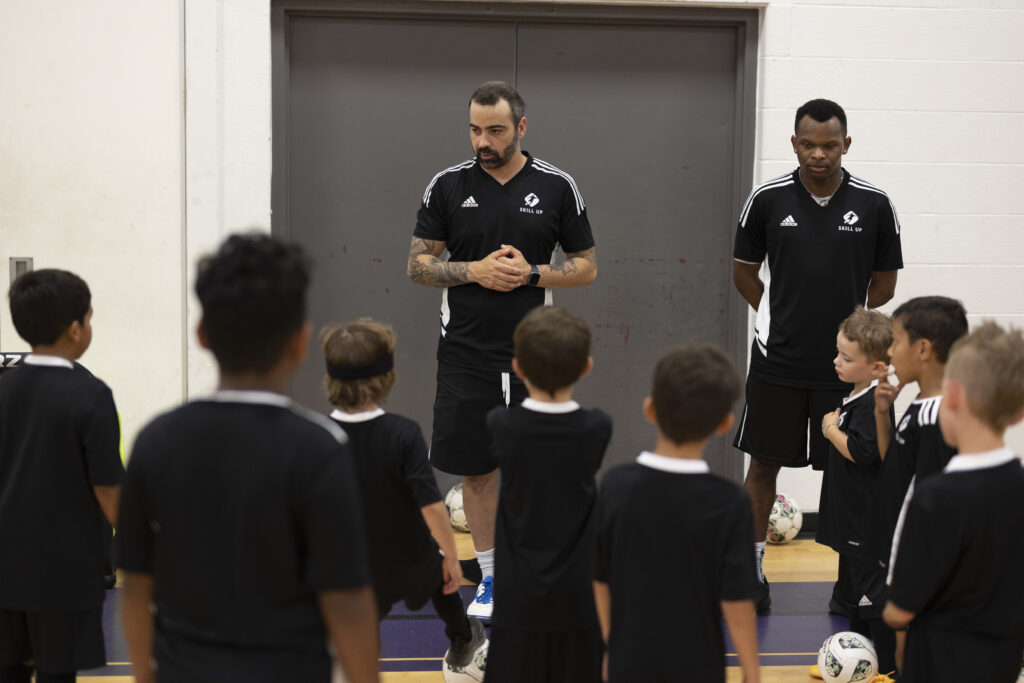
Bonito: Why do you think football evokes such powerful sentiments with such a broad range of people all over the world? Do you think it has an advantage in Canada over some of the more established Canadian sports?
Douglas: Football’s profound impact and global resonance can be traced to its unique combination of universal accessibility, cultural significance, and emotional connections. Growing up, playing football wasn’t merely a choice for me; it was a fundamental aspect of my identity. Rooted in the culture of my birthplace, football became the primary avenue for physical activity and a shared experience within the community.
In contrast, the Canadian context, traditionally dominated by hockey, presents a shift. However, with an influx of new immigrants and the associated costs of hockey, football emerges as a more accessible and inclusive option. As professionals in the field, we recognize the need to strategically use sports as a hook, creating environments that are not only safe and fun but also outcome-oriented.
Football’s global appeal is fueled by its simplicity, requiring minimal equipment, and its deep cultural significance. It serves as a universal language that transcends borders, fostering emotional connections and a sense of unity among diverse populations. Football’s cost-effectiveness further contributes to its accessibility, making it a viable alternative in communities such as indigenous communities in Canada where economic barriers might limit participation in other sports.
Bonito: while many regions get a lot of focus in the football for good world- we don’t hear much about indigenous communities. Tell us about some of the projects you are currently working on using football as a tool for indigenous community development?
Douglas: No, we are a bit unique in that regards. In the realm of football for good, my involvement with Right To Play has encompassed a multifaceted approach, considering the diverse cultural contexts and worldviews of our Indigenous partners in Canada. We embrace a multisport approach, allowing Indigenous partners to choose the type of program they run. Importantly, this isn’t limited to traditional sports but extends to various forms of play, recognizing the contextual and cultural components of play itself.
I have had the privilege of traveling to numerous community partners across the country to support the delivery of sport clinics. These initiatives spanned a spectrum of sports, reflecting the diverse interests within communities. Projects included lacrosse, hockey, volleyball, football, basketball, ultimate Frisbee, snowboarding, skateboarding, cheerleading, and hoop dancing.
One noteworthy project unfolded in the Osoyoos Indian Band, south of British Columbia, Canada. Collaborating with local star Marvin Louie, we organized a football (soccer in Canada) for development clinic. Visiting three different schools, we introduced soccer fundamentals such as passing, dribbling, and shooting to over 150 participants. To ensure the sustainability of the project, we left over 50 soccer balls within the community.
Also Last summer, we had the incredible opportunity to partner with the Kenora Chiefs Advisory in the Kenora area of Northwestern Ontario. Invited by the organization — represented by Josiah Penner, Terry Parisien, and the dedicated Program Officer Rachel Crook — I facilitated a soccer clinic for the local community. Our efforts extended to engaging the local school in Whitefish Bay, creating a truly inclusive and fun experience for the youth.
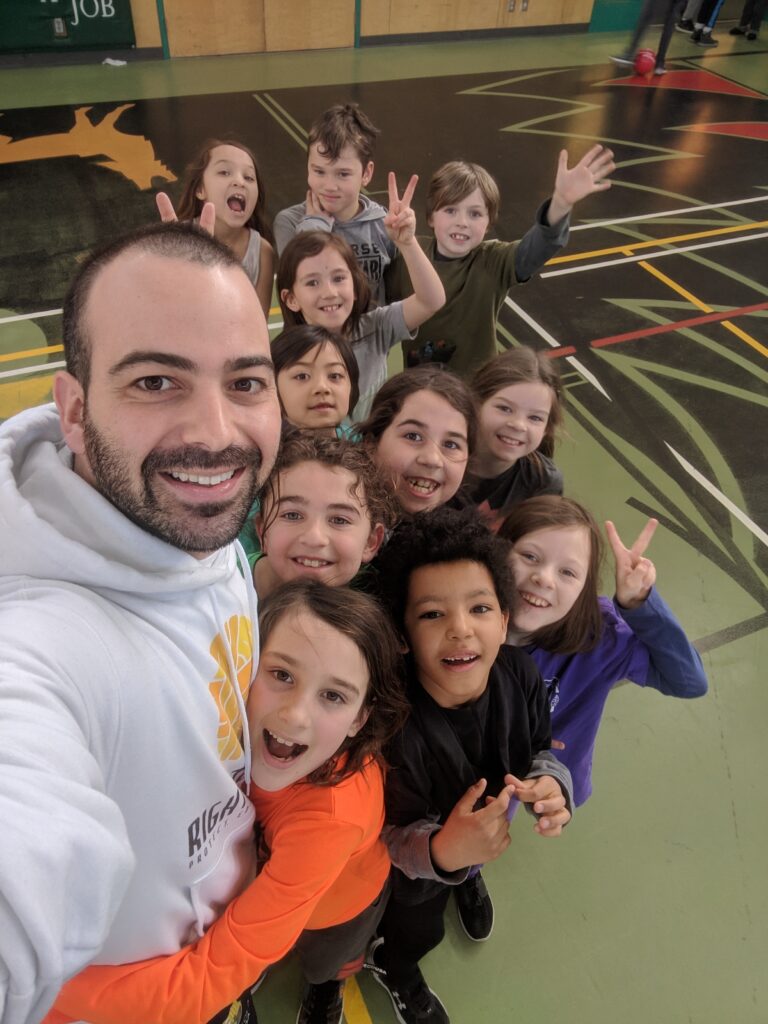
Bonito: Fantastic!
Bonito: Can you also tell us about Skill Up Futsal!
Douglas: Oh yes of course- Additionally, I am currently leading the Skill Up Futsal Training initiative, a program designed to support the development of young Canadian players through futsal. While incorporating elements of Sport for Development in the sessions, this program places a particular emphasis on performance outcomes. It aims to enhance the skills of young players through focused training sessions, contributing to their overall development both on and off the field.
Bonito: Where do you see the football for good field heading in the next years? Which thematic areas will be most important to deal with and what are the big challenges awaiting sport for good practitioners?
Douglas: Looking ahead, the football/sport for social good field is expected to broaden its focus beyond immediate physical benefits, aiming for a more extensive societal impact. This evolution may see sports, including football, becoming increasingly instrumental in addressing overarching issues such as mental health, gender equality, education, and community cohesion.
Technology is anticipated to play a pivotal role in shaping the future of sport for social good. The ongoing integration of innovative solutions, including virtual training platforms, data analytics, and interactive experiences, could significantly enhance program delivery, participant engagement, and monitoring processes.
One crucial aspect to consider is the balance between broader outcomes and performance. Participant engagement often thrives when tangible results of their efforts are visible. Striking this balance will be essential in maintaining and enhancing the effectiveness of sport for social good programs. Additionally, there is a potential for further development of Monitoring and Evaluation tools to support evidence generation. Enhancing these tools will be crucial in demonstrating the value of sports in the process of positive social change, providing a robust foundation for future initiatives.
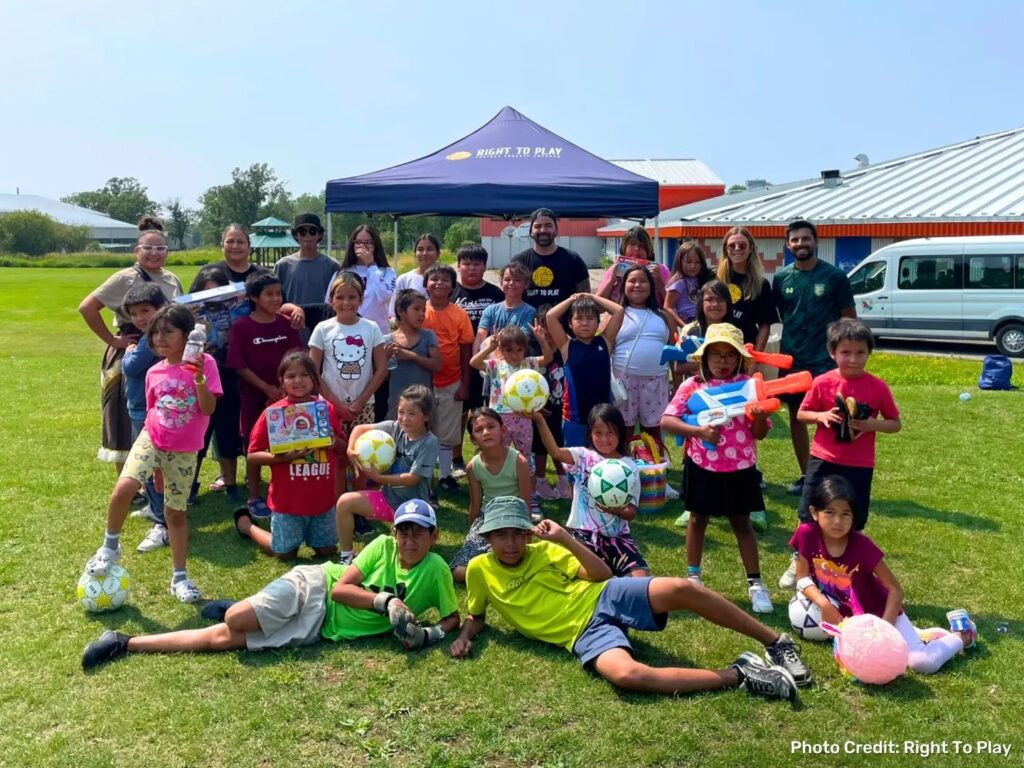
Bonito: Can you tell us about a moment in your football (or sport) for social good journey that touched your heart profoundly?
Douglas: A profoundly touching moment in my sport for social good journey occurred during my visits to remote (fly-in) communities in northern Canada. These communities, isolated by colonialism processes, often find themselves accessible only by plane or winter roads during the colder months. Leaving these communities is a rarity, as flights are expensive and many families can’t afford them. When Indigenous youth do leave, it’s usually for reasons such as hospitalization or evacuations.
However, there are instances where partners manage to bring these youth to participate in sports tournaments, such as the Little Native Hockey League in Ontario. Every time I visited these remote communities, the warmth of their welcome and the genuine hospitality touched my heart deeply. Non-residents, especially those bringing a week of joy through sports and the presence of a positive Indigenous role model, along with brand new sports equipment, are a rarity.
In the initial days, there’s often a hesitancy, a wariness of the unknown visitors. Yet, as the week unfolds, a transformation occurs. The participants, by the last day, not only participate wholeheartedly but walk us to the lodge, seeking photos, autographs, and hugs. It’s a testament to the impact of sport, not just as a game but as a catalyst for building connections, fostering trust, and creating positive memories. These moments, filled with joy and shared experiences, highlight the power of sport for social good in bridging gaps, breaking barriers, and leaving lasting imprints on the hearts of those involved.
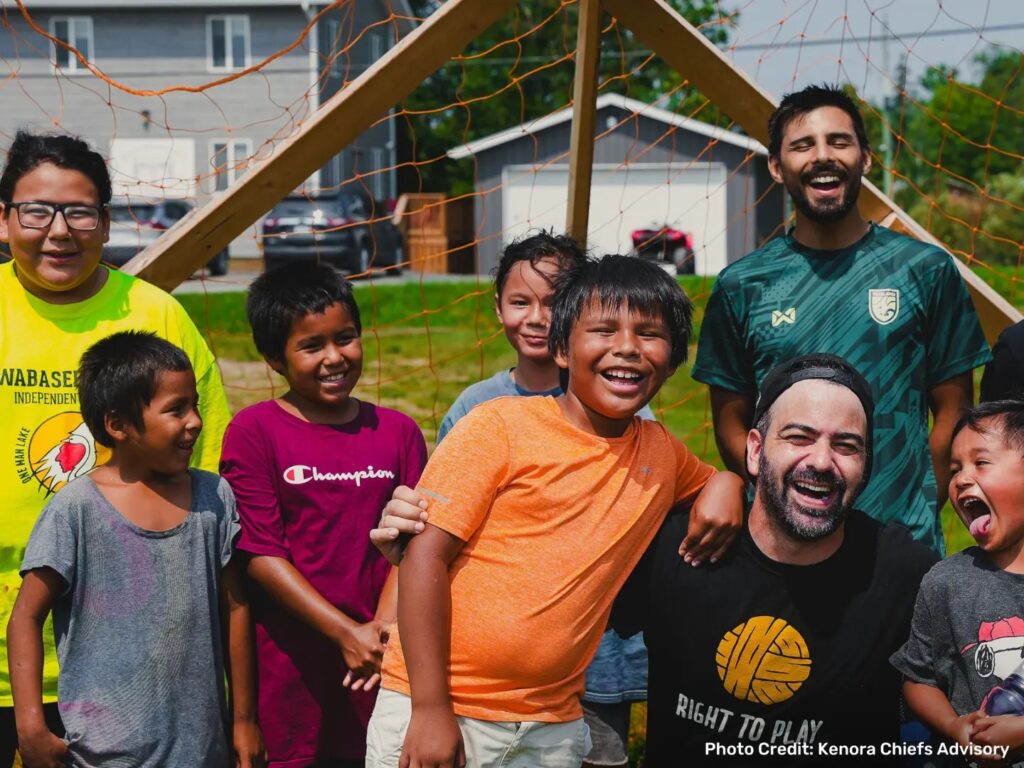
Bonito: Is there one colleague at your organization or who you have collaborated with who maybe doesn’t always get the spotlight that you would like to shine today and why?
Douglas: I’d like to take a moment to shine a spotlight on two incredible colleagues at my organization—Rolan Mendoza and Sami El-Sibaey. Both of them play crucial roles in the sport for social good environment, and their contributions often go beyond the spotlight.
Rolan Mendoza, a Mexican-Canadian, brings a wealth of knowledge to our team. As a former local youth worker in Squamish First Nation, Squamish, BC, Rolan has provided invaluable insights into how sports programming unfolds in communities. His on-the-ground experience has been instrumental in shaping our approach to be more supportive and realistic in meeting the actual needs of the communities we partner with. During the pandemic, Rolan demonstrated exceptional leadership by delivering gender-equity and Mixed Martial Arts programs in Squamish. In these challenging times, he played a key role in shifting our focus toward community-led initiatives, ensuring the safety of all participants from Covid-19.
Sami El-Sibaey, a Syrian-Egyptian-Canadian, is another outstanding colleague whose work deserves recognition. With an impressive educational background and extensive experience in football coaching, Sami has invested significant time in understanding the profound impact of sports on individuals. His dedication goes beyond the conventional, as he has also committed time to comprehend various Indigenous frameworks and their application to our work. Sami’s holistic understanding enriches our initiatives and contributes to the broader goal of leveraging sports for positive social change.
I want to express my gratitude to Rolan and Sami for their outstanding work, commitment, and the positive influence they bring to our organization’s mission in the sport for social good arena. Their efforts are integral to the success of our initiatives, and they truly embody the spirit of making a difference through sports.
Bonito: Douglas, what an interesting story you have spanning so much geographical territory and cultural territory! thanks so much for joining us.
Douglas: My pleasure Bonito- a fantastic Portuguese name!
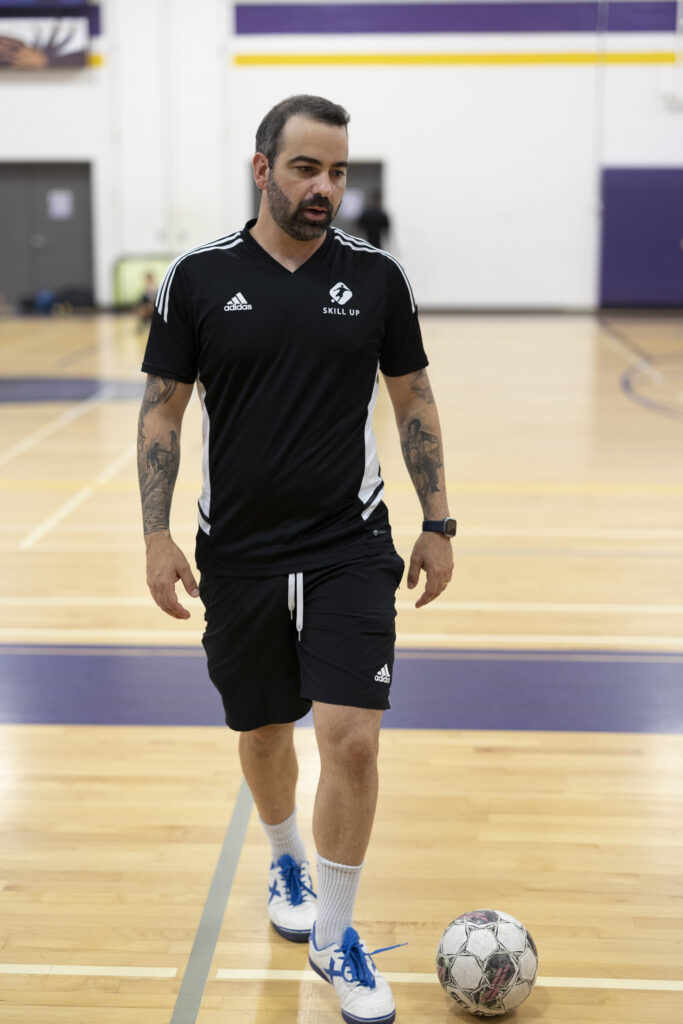
BIO
Name: Douglas Arienti
Organization (s): Righty To Play
Role: Training Manager, Indigenous Programs
Favorite Football (or sport) for good organization apart from your own: Hope & Health
Favorite Football Club: Grêmio Foot-Ball Porto Alegrense
Dream sport for good organization that you would love to collaborate with on a project: FC Barcelona
